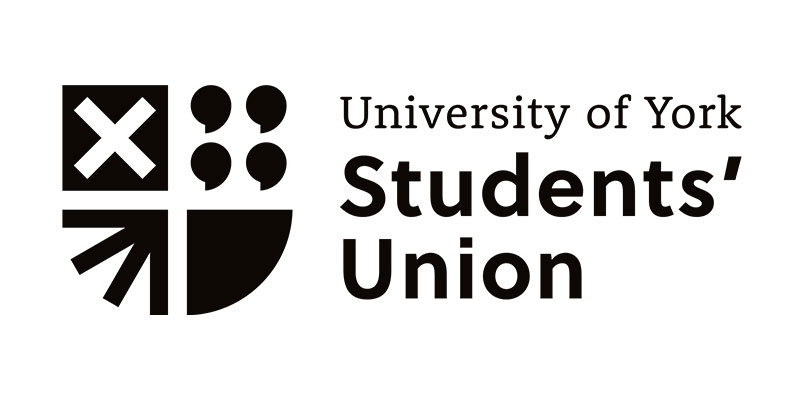
Academic appeals
How does the appeals process work?
Find out more about what to expect if you're going through the appeals process.
When to appeal
Once an academic decision - eg failure or degree classification - has been ratified by the Board of Examiners, there is no further scope within an academic department to amend that decision. In such cases, students are advised of their right to appeal that decision within 28 days.
When an Exceptional Circumstances Committee has made a decision, it can review that decision (for example by reviewing further evidence) provided the affected assessment's mark has not yet been ratified by the Board of Examiners. Where the Board of Examiners has met, students may only contest the Exceptional Circumstances Committee's decision by submitting an academic appeal.
How to appeal
Appeals must be submitted within 28 days of the decision by submitting a Formal Stage Appeal Form.
Guidance
Before submitting an academic appeal students are encouraged to read carefully the academic appeals procedures and Student Appeals Guidance.
Where students wish to contact the Special Cases team, they are advised to read the Special Cases and Complaints Behaviour and Communications Policy (PDF ![]() , 123kb)
, 123kb)
Any data students share as part of their academic appeals will be treated in accordance with the University statement on data protection.
Evidence and use of third parties
Students are strongly encouraged to seek assistance with their appeals from the advisers at the University of York Students' Union, where confidential and independent expert advice is available free of charge.
Students are advised against using private companies to help with preparing appeals. We are aware of a number of private companies offering the following services: writing appeals for students, creating fabricated evidence on behalf of students, and corresponding with the University on the student’s behalf. These companies, which are often advertised through social media and word of mouth, are unregulated and unlicensed. They are in no way connected to or associated with the University of York, which only recommends the University of York Students' Union for help in preparing appeals.
We are aware of companies charging students very high fees to fabricate appeals or evidence. In some cases, these companies have increased their fees once the appeal evidence is submitted to the University, and blackmailed students by threatening to reveal the fraud to the University and/or the police unless they receive the additional fees.
Consequences of submitting fabricated evidence and or false appeal information
Students can take advice on appeals, but they must be written by the student themselves, be a full and honest account of events and, where appropriate, accompanied by genuine supporting evidence.
We are aware that in some cases, companies have fabricated appeal evidence, as well as fabricating the events listed in the appeal, in order to try and secure a positive outcome.
Students who submit fake evidence and/or fake appeal information may be subject to disciplinary action by the University.
The case officers handling appeals are taking active measures to detect and verify fake or fraudulently modified appeal evidence. If fake or modified evidence is confirmed, the Special Cases team reserves the right to reject evidence, reject an appeal, to refer students for disciplinary action (which may result in expulsion from the University or other sanctions) and to refer the matter to the supposed source of the medical evidence. You should be aware that forging medical evidence and submitting it to the university to try and gain an advantage is a criminal offence under the Fraud Act.
If your appeal is initially upheld, and we subsequently discover that your appeal was upheld due to false evidence, we reserve the right to initiate disciplinary proceedings at a later date.
If you would like assistance with your appeal, you should instead use the advisers at the University of York Students' Union. The University of York Students' Union advise solely in relation to York and have regular discussions with the case officers who handle appeals at York. The University of York Students' Union advisers therefore have the highest level of expertise in York’s regulations, while still being independent of the University and free of charge for students to use.
Review-Stage (second stage) of the Appeals Process
Students who are dissatisfied with the outcome of their Formal Stage appeal have 10 working days from being formally notified of that outcome to submit a Review Stage appeal. Students should only complete this form if they have received a Formal Stage Appeal Outcome letter. An online form is available: Review Stage Appeal Form.
Remedies and timescales
Update on Appeal Consideration Deadlines
The appeals process usually aims to resolve appeals within 90 days of receipt, however, the Special Cases team has received an unprecedented number of academic appeals in the past 12 months, continuing to date. As a result, we are unlikely to be able to meet the 90 day appeal resolution target. Triaging, investigating and providing a considered response to appeals is a detailed and time-consuming process. We have made amendments to the appeals procedures and have recruited additional staff to help reduce the delays to consideration of appeals.
The appeals process aims to resolve appeals (including both appeal stages) within 90 days of receipt. This 90 days does not include days when case officers are waiting for students to provide evidence, during which time the 90 days is paused and the appeal is placed on ‘hold’. Triaging, investigating and providing a considered response to appeals is a detailed and time-consuming process. Whilst the Special Cases team resolves appeals as quickly as it can,there are currently significant delays to the appeals process due to the unprecedented volume of appeals received during the last two academic years. Once an appeal is upheld, the University requires several weeks of advance notice to make arrangements for exams to be set. It is important to be aware of these factors when considering the timing of any appeal remedy.
As a result, students submitting appeals in June or July should not expect to be offered resits in the August assessment period. Similarly, students submitting appeals in autumn should not necessarily expect to be taking assessments the following January. The most likely remedy in such cases is to be offered a leave of absence for the next academic year or to be offered repeat study.
Students cannot progress to the next academic year until they have passed the preceding year,e.g. students must pass year 1 before progressing to year 2. This means that any student appealing against failure in summer should not expect to progress to the next academic year in the same autumn eg programme failure in summer 2024 will mean a student cannot progress to the next academic year in autumn 2024. For example: A student fails their programme in late June 2024, submits an appeal in late July 2024 - the appeal is upheld in September 2024 and the remedy is a leave of absence until autumn 2025, during which time the failed assessments can be taken again ‘as if for the first time’.
Need help with your academic appeal?
York SU Advice and Support provide free, confidential, independent and specialist advice on the appeals process.
We strongly advise that you seek their support prior to submitting your academic appeal.

Dissolution of the Special Cases Committee
In May 2023, Senate agreed to the dissolution of the Special Cases Committee and transfer of the delegated authority assigned to it to Student and Academic Services (Special Cases). Read more information about the background to the change: SCC DIssolution Summary Students (MS Word ![]() , 55kb)
, 55kb)
